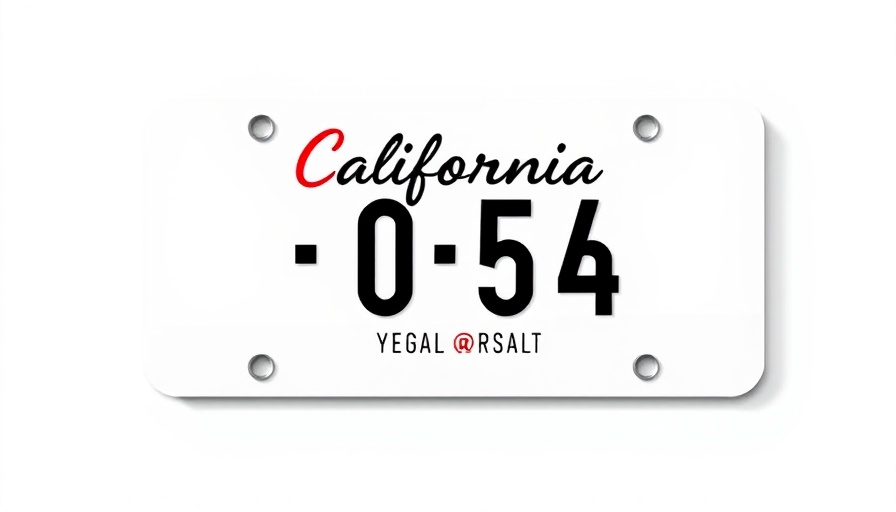
Understanding the Recent Increase in Vehicle Repossessions
The Consumer Financial Protection Bureau (CFPB) has recently reported a concerning trend in the auto finance sector: an increase in vehicle repossessions. This uptick reflects broader economic pressures affecting consumers, underscoring the importance of understanding the financial landscape in which dealerships operate. With average outstanding balances exceeding $11,000 after a repossession, dealers must navigate these complexities to better support buyers and manage risks.
Historical Context of Vehicle Repossessions
Historically, vehicle repossession rates fluctuate with economic conditions. During economic downturns, such as the Great Recession, repossession rates soar as individuals face financial hardships. This recent rise in repossessions echoes similar trends, indicating that consumers might be struggling with their outstanding auto loans as inflation and rising living costs take their toll. Dealerships should be aware of this context as they engage with customers facing tighter budgets.
The Financial Impact on Dealerships
With the average outstanding loan balance climbing after repossession, the financial implications for dealerships grow more profound. Higher outstanding balances may lead to increased write-offs or losses for dealerships, compelling them to reconsider their lending practices and customer vetting processes. Dealers might benefit from offering financial counseling or education services to help consumers make informed decisions, potentially lowering the repossession risks.
Strategies for Dealerships to Mitigate Risks
To navigate this changing landscape, dealerships can implement several strategies. First, enhancing communication with customers about their loan terms can foster greater responsibility and financial literacy. Second, adopting technology to analyze customer creditworthiness can help dealerships identify potential risks before approving loans. Lastly, creating a follow-up protocol for buyers facing repayment difficulties can ensure timely assistance and reduce the likelihood of repossession.
Looking Ahead: Future Predictions for the Auto Market
As we move forward, it is essential to keep an eye on the evolving auto finance market. Predictions suggest that auto lending will face increased regulatory scrutiny, which may influence lending practices and repossession rates. Understanding these trends will be crucial for dealerships. Dealers who remain proactive and adaptable to these changes will find themselves better equipped to handle the complexities of vehicle financing.
Awareness of Customer Sentiment
For dealership principals, understanding how these prevailing trends affect their customers' sentiment is vital. Increased repossession rates may lead consumers to perceive the auto market as risky, potentially impacting sales. Thus, dealerships need to communicate transparently about financing options and support systems available, fostering a sense of security for potential buyers in increasingly uncertain times.
In conclusion, the rise in vehicle repossessions as indicated by the CFPB analysis reveals important lessons for dealerships. By addressing these critical issues head-on, dealers can not only protect their assets but also contribute to a more stable financial ecosystem for their customers.
 Add Row
Add Row  Add
Add 




Write A Comment